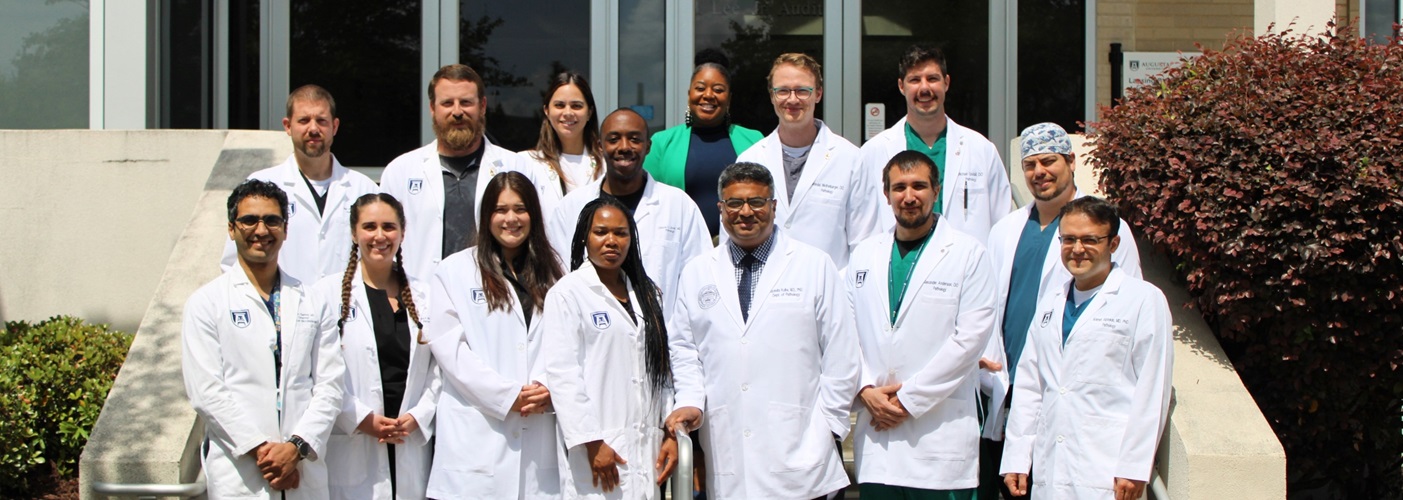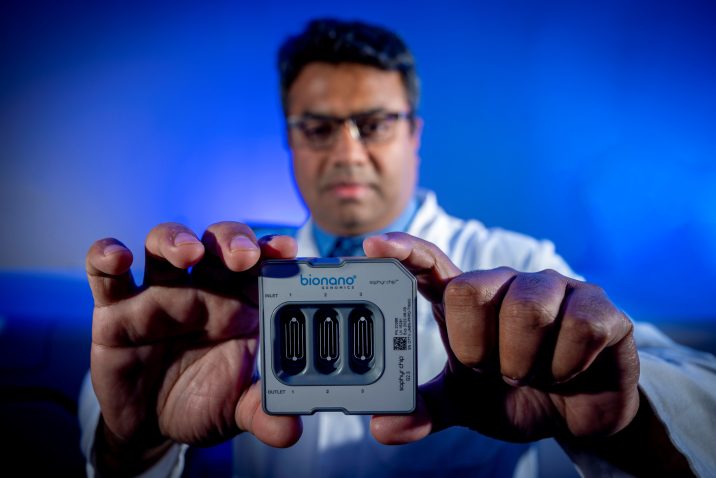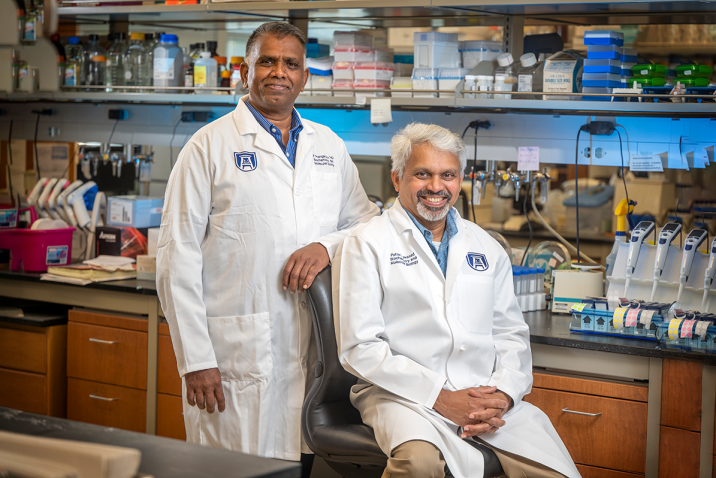
Pathology sits at the cusp of basic & clinical sciences. This unique position allows the Medical College of Georgia Department of Pathology to contribute in an important & meaningful manner to clinical care through the provision of timely & accurate diagnoses, as well as, laboratory testing results.
At the same time, investigative approaches within the department seek to further define our understanding of disease processes, paving the way for therapeutic interventions.
Jump to: Education Research & Clinical ServicesPathology News
Department of Pathology
Health Sciences Campus
706-721-2923 (Admin. Office)
706-721-2771 (Clinical Lab)
706-721-2358
1120 15th Street, BF 104, Augusta, GA 30912
The Department embraces the tripartite mission of the Medical College of Georgia i.e. clinical service, education, and research. The Department of Pathology (Anatomic & Clinical Pathology) has 22 clinical faculty, including 2 members based at the Athens Campus, and 6 research faculty. Clinical services are delivered primarily to AU Medical Center's 478 bed adult hospital and the 154 bed Children’s Hospital of Georgia.
As academic faculty, we shoulder the responsibility to provide a learning experience for students and residents that will catapult them into the professional arena as well-trained, knowledgeable, inquiring medical graduates and competent, compassionate, intellectually mature physicians. The Department plays a key role in the education of medical students with maximal interactions during the Phase 2. No longer a ‘stand alone’ course, instruction in Pathology is fully integrated as part of the Cellular and Systems Disease States in concert with medical microbiology and pharmacology. The Department also offers a number of electives for 3rd and 4th year students. The Graduate Medical Education program includes 12 residents and 2 fellows. Trainees participate in all activities within the Department, obtaining requisite competencies through graduated responsibilities as they progress towards their career goal of becoming competent diagnosticians and independent pathologists, whether in an academic or community practice.
The Department of Pathology’s faculty received approximately $10 million in NIH funding primarily through investigators in Augusta University's Center for Biotechnology and Genomic Medicine (CBGM) and the Cancer Center.
These and other faculty, who maintain primary academic appointments within the Department of Pathology, substantially enhance the department’s research endeavor. Our clinical faculty are also engaged in correlative and translational research, providing opportunities for medical student and residents. Additionally the Department also serves as a central repository for a statewide network, the BioRepository Alliance of Georgia for Oncology (BRAG-Onc). BRAG-Onc currently consists of eleven contributing institutions in Georgia, with MCG as its leading and coordinating hub.
The Department also operates Georgia Esoteric Molecular Laboratory, an independently licensed and CLIA certified reference laboratory, which provides esoteric molecular testing and pathology consultation services for hospitals and physicians. Approximately 1.3 million clinical laboratory procedures and 13,500 surgical specimens are processed annually. With specialty trained experts in almost every area of anatomic and clinical pathology, we provide diagnostic and consultative services, facilitating key clinical decisions.
The Department of Pathology at Medical College of Georgia at Augusta University thus plays a key role in education and research while providing vital diagnostic and clinical consultative services throughout the state. I invite you to explore other areas of this website, or come and visit us to get a firsthand look at our department and meet with our faculty, staff, and trainees.



